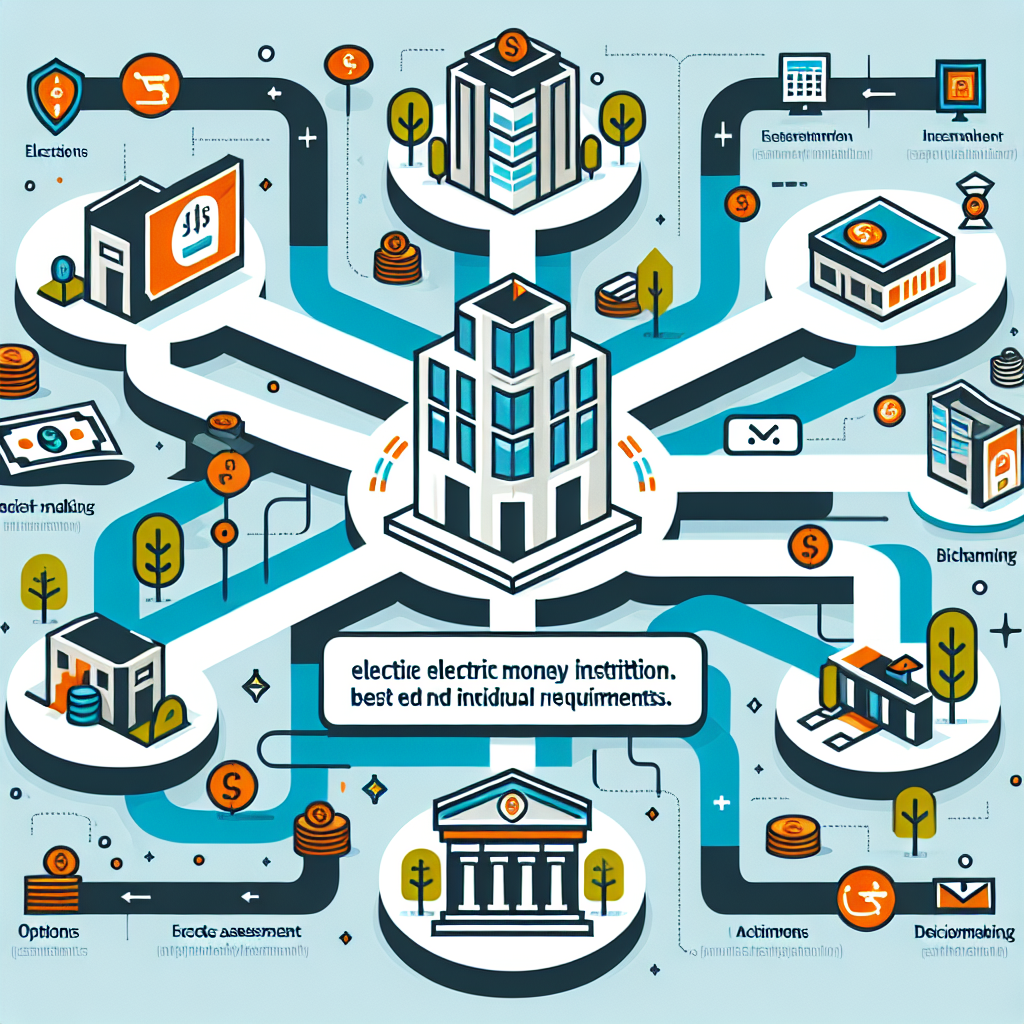
Introduction
The rise of electronic money institutions (EMIs) has transformed the way we conduct financial transactions. This guide will help you navigate the often complex landscape of EMIs, ensuring that you choose the right one for your personal or business needs.
What is an Electronic Money Institution?
EMIs are firms that are authorized to issue electronic money and provide payment services. They facilitate various financial operations, from online payments to international transactions.
Benefits of Using an EMI
- Convenience: EMIs provide quick access to funds, often with user-friendly interfaces for transactions.
- Cost-Effectiveness: Many EMIs offer lower transaction fees compared to traditional banks.
- Security: EMIs are required to adhere to strict regulatory standards, enhancing the security of your funds.
How to Choose the Right EMI
1. Assess Your Needs
Before selecting an EMI, it’s crucial to identify your specific financial needs—whether you require personal payments, business solutions, or international transfers.
2. Licensing and Regulation
Ensure that the EMI is licensed and regulated by a recognized authority. This adds a layer of security and reliability.
3. Fees and Pricing Structure
Compare the fees associated with different EMIs. Look for transparency in costs, including transaction fees, monthly fees, and withdrawal fees.
4. User Experience
Evaluate the user interface and overall experience. An intuitive platform can make managing your finances significantly easier.
5. Customer Support
Reliable customer support is essential. Check the availability of support channels such as chat, email, and phone support.
6. Integration and Compatibility
For business users, ensure that the EMI can integrate seamlessly with your existing systems and payment gateways.
Related Searches
- Best electronic money institutions for small businesses
- How to transfer money internationally through EMIs
- Electronic money institutions vs. traditional banks
FAQ
What types of services do EMIs offer?
EMIs provide various services, including payment processing, international money transfers, prepaid cards, and currency exchange.
Are EMIs safe?
Yes, reputable EMIs are regulated and implement advanced security measures to protect your funds.
How long does it take to transfer money through an EMI?
Transfer times vary by institution and transaction type, but many EMIs offer instant or same-day transfers.
Interview with an EMI Expert
Q: What should consumers prioritize when choosing an EMI?
A: Consumers should focus on security features, fees, and customer support. Some EMIs excel in certain areas, so it’s important to find one that meets your priorities.
Q: How do EMIs compare to traditional banking services?
A: EMIs often provide more convenient and cost-effective solutions for digital transactions than traditional banks, especially for online payments and global transactions.
Conclusion
Choosing the right electronic money institution involves assessing your needs, understanding the market, and doing thorough research. With this guide in hand, you’ll be better equipped to make an informed choice that meets your financial goals.
Related Article on EMIs (nofollow link)
Find out more about EMIs (nofollow link)
#Comprehensive #Guide #Choosing #Electronic #Money #Institution

